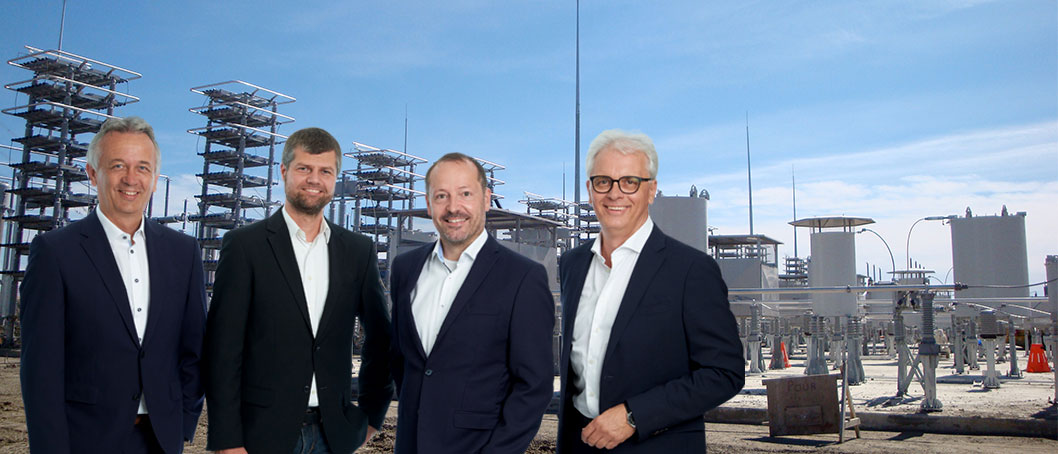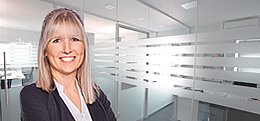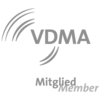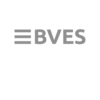H: This year, INP is celebrating its 25th birthday. I am delighted that I have the opportunity today to talk to you about the origin of our company, and to take a look back to the time before Nicklas und Partner/INP. Could you tell me what prompted the foundation of Nicklas und Partner/INP?
JL: Between 1982 and the start of 1988, I was working as a commissioning engineer at BBC. Age 22, I was the first female commissioning engineer at BBC, they used to call me the "prototype". At that time, there were 150 men in the department, and the only woman was the secretary. At the construction site in Mülheim-Kärlich, I got to know Norbert Nicklas who had worked as a freelancer for BBC in Metz. This contact was to become very important for me later on. But let's return to the beginning. In 1988, BBC merged with Asea, and became ABB. My daughter Carolin was born in the same year. I applied for a year of maternal leave, and took a holiday with my husband and child. There, we were involved in a terrible road accident in which my husband was killed, and I found myself as a single parent with an income of only 350 Deutschmarks per month from the social security. At the time of the accident, my husband was still a student so my daughter and I were not entitled to any half-orphan's or widow's pension from the government.
H: That must have been a dreadful situation. Was your family able to help you?
JL: My mother tried to support me, but she only had a very small widow's pension, and my brothers and sisters were all still at school or taking apprenticeships. As a result, no-one was able to give me financial help. I asked my former employer if they could offer me a part-time job. They arranged a half-day job in the planning department for, which was rather unusual at the time. I soon realized that my half-day's wage was inadequate to pay for the childcare, rent, food and all the rest. I got a job teaching at the university of cooperative education in Mannheim, but it didn't pay very much. I see how to make things meet for me and my daughter.
H: How did you find a way out of this difficult situation?
JL: Luckily, my husband had taken out a legal expenses insurance policy, and I was able to win a case in Spain against the insurer of the driver who caused the accident, obliging them to compensate me for my loss of pension. It was only because of this insurance policy, which was the only policy we had by the way, that I was able to conduct the case because it lasted three years – up to 1992 – and cost 80,000 Deutschmarks. To pay my everyday living expenses, I went to ABB and asked if they would put any work my way if I became self-employed. I was a known quantity at ABB and they appreciated my work, in particular because of my knowledge and experience gained during six years of working on commissioning jobs. My specialty was feed water control – one of the most complex areas in commissioning. As a result, ABB recommended me to one of its partner companies, which gave me my first order. I received a planning order – the engineering for a Siemens control system in the "Gorleben" project. That was the point – March 1989 – when I decided to go self-employed. However, there were still some difficulties. The court case in Spain was still dragging on, and according to Spanish law I was not allowed to found a company in my name. This is when Norbert Nicklas came into the picture. At the time, he was working on a commissioning job in Iran, and I wrote to him asking if he would lend me his name. He immediately agreed, so I call the company Nicklas und Partner and established it as a GdbR, which is a partnership under civil law. This meant my name did not appear anywhere, and I was merely the partner.
H: That was very bold!
JL: Indeed, at the time I felt I had lost everything, but on the other hand I didn't have anything left to lose. The wolf was at the door, and I had the responsibility of bringing up my daughter. At the same time, thankfully, there were many people who helped me and wished me well, and who tried to do good things for me personally. I always used to work from 8 p.m. to about 4 a.m., since that was when my daughter was asleep. Incidentally, I used the PC of my deceased husband – a 286. It is still in our archive, because it is our company mascot. Over all this time, I have made sure that it is neither sold nor scrapped!
H: Did you work on your own all this time?
JL: I had support starting from the second order I received, which came from Linde. The support was from a draftswoman friend of mine and student assistants. At that time, we still used to draw circuit diagrams with ink. My brother also worked part-time with me in the early 1990s during his time at university. He still keeps a receipt for his student wage from that time, for money that I paid him. All this went on in my apartment. In summer 1989, Norbert Nicklas visited me during his holiday, and saw that I had plenty to do. Together, we wondered if it would be a good idea for him to play an active role in the company. We had already worked together during our time at BBC, so I knew that we could get on well and that Norbert is very reliable. However, Norbert also told me that he had got to know someone in Iran who might very well fit the bill, this was Klaus Jungknecht. The three of us then had our famous meeting at Hambach Castle.
H: What do you mean by famous? What actually happened during the meeting?
JL: I met Klaus Jungknecht for the first time there, and we immediately got on well: three strong personalities who struck a good balance together. It was on this basis that we founded Nicklas und Partner GmbH on 1 November 1989.
H: That was really quick. If my calculations are correct, there was less than one year between the foundation of the GdbR company and the GmbH. Did Mr. Jungknecht join the company immediately after it was founded?
JL: Initially, Klaus Jungknecht still worked at Westinghouse for a while. In 1990, Norbert and I received our first joint project, namely the engineering work for an arsenic plant in Goslar for AEG Braunschweig. Norbert and I needed additional support. Overnight, we had to get all the folders and plans together, and they were then copied by Klaus Jungknecht together with my sister Annette. Incidentally, that was no longer in my home, but in our first office in Salierstraße in Speyer. It was a one-room office, and we had our first employee, Rosi Neumann. Annette Jester who was also doing part-time work for us then, had also started at Nicklas und Partner a few years before after her business studies degree, and she is now in charge of the HR department. During the following years, Norbert and Klaus concentrated on recruitment, while I set up the planning department and handled projects. One of the first major projects, from ABB, involved the incineration plant at AVI West. Patricia Deibel, the first employee in the planning department, and I did the planning work on our own at the time. It involved nightshifts and pea soup supplied by my grandmother!
H: That all sounds like a really scary and unconventional initial period. Do you have any other unusual stories that you can tell us?
JL: There is one amusing story that Michael Kopp recently reminded me of. He came for his interview with us 20 years ago. In the meantime, I had given birth to Ariane and Leonard, so I was the mother of three children. I always returned to work directly after my maternal leave, taking only six weeks, so in each case I was still breastfeeding, and I simply took Leonard along with me to the office. Shortly before the interview with Mr. Kopp started, my baby was so hungry that I fed him under my blouse during the interview, without Michael Kopp noticing. When Leonard was full, I popped him out from under my blouse and Michael Kopp was left thinking in astonishment: "I've got to work for this company!"
H: In spite of all the funny aspects of this history, it is still the case that Nicklas und Partner was born out of an accident, a concatenation of hard knocks and prompted by the fact that you simply had no money. How did it continue?
JL: In the beginning, I didn't know whether it would work out with ABB. As a result, I first had to learn how to win new customers in the first place - I had been working on project handling and commissioning, which has nothing to do with generating new customers.
H: To look at you today, such a confident and professional character, it is impossible to imagine that you were rather shy and unsure of yourself at that time.
JL: Nowadays, there are wonderful training courses that teach you everything from the ground up. I didn't have any training, it was all learning by doing. To find potential customers for us, I used to scan the newspapers - there was no Internet at the time, of course - looking at advertisements placed by companies offering vacancies. At the time, no-one knew about us, and except for ABB, I didn't know many companies either. I was very nervous before my first customer visit. As a result, I always encourage all young people, including my children, to seize training opportunities, because that would have helped me a lot at the time.
H: How did the company's development continue?
JL: After the Berlin wall came down, a lot of recruitment companies sprang up in the eastern part of Germany. As a result, we made losses on our recruitment activities, and we had to live off the earnings of the planning department.
H: Ms. Deibel has already explained that there was a major drop in business and that you really should have asked her to leave, but you didn't want to do that. And at the last minute, you were able to continue to offer her employment. How was that possible?
JL: We made a slight correction to our concept. At the time, Klaus went to India to manage a construction site, and this helped to plug the gap; Norbert took over the commercial tasks and I increased the size of the planning department. It was at this time that Michael Miel, Michael Pflanz and Martina Albert joined the company. Ultimately, I succeeded in making a breakthrough for the planning department when I landed the Leuna project from ABB. It was in this context that we hired Michael Kopp, Jürgen Wilkening, Frank Trapp and Katrin Herdegen. I was able to negotiate with ABB for the installation of a dedicated line to Speyer. In addition, they installed six EDS machines with us on loan - we had no money to buy them - which were really powerful computers for the time. That enabled us to manage it.
H: Nicklas und Partner continued to grow. When did your brother ultimately join the company?
JL: In 1995, we had 40 employees and we realized that we needed a specialist to work in the commercial department. My brother was doing a business studies course at the time, and so I asked him if he fancied joining us. He was interviewed for the post by Klaus Jungknecht and Norbert Nicklas. Following that, he took his exams and joined us in 1996. At the time, we were bursting at the seams and we looked everywhere in Speyer for additional rooms.
H: Why didn't Nicklas und Partner remain in Speyer, but moved to Römerberg?
JL: At the time, the company didn't have any money to throw around, and we didn't feel confident enough to build anything at first. We all were making do with very low wages. For example, during the first 10 years after founding the company, I earned much less than when I was a commissioning engineer at BBC. Then, premises became available for companies and offices in an industrial park at Römerberg. The only precondition was that you had to have come from Römerberg, because only Römerberg people were allowed to buy. So it was a godsend that Norbert had been born in Römerberg, and that I and my family had moved here in the meantime. So, we submitted an application, which was approved, allowing us to purchase the site and erect the building which we moved into in 1997.
H: It was a bold move to make a purchase when you still didn't know how things would develop.
JL: Yes, that is why we designed a modular building. You can see that we have built two additional stairwells which allowed us to rent out the individual parts of the building separately, which is what we did during the first few years.
H: When were the building and the hall opposite added to the portfolio?
JL: I think that was in 2005. Initially, we rented the building from Zimmermann, a welding company, and later we bought it. That was the year when we handled the Rothensee project, and we used the hall as a test area.
H: That almost rounds off the history of Nicklas und Partner. But there's still one person missing. How did Knut Mertens join the team?
JL: That's quite an amusing story. In 1995, I moved to Römerberg and sold my apartment in Dudenhofen - to Knut Mertens. That's how we got to know one another. At the time, he was working for ABB Reaktor, but I didn't know him from there.
H: So that means you only realized that he was in the same line of business when he came to view the apartment?
JL: Exactly. We hit it off right from the start. It got to the point when I told myself that he would fit in very well at Nicklas und Partner. I told him that if he didn't fancy being on the road for ABB Reaktor all the time, he should get in touch with us. The time was right in 1999 when parts of ABB were sold to Alstom. At the time, I was also looking after project work at ABB Switzerland as well as recruitment for Alstom Switzerland. That was when Knut Mertens joined us and reinforced the recruitment department under Klaus Jungknecht. At that time, Norbert Nicklas was in charge of the test area. Over the years, Georg Jester and Knut Mertens moved up to the board of management, and they are now partners of INP Deutschland GmbH with the same powers as the founding partners.
H: The history of Nicklas und Partner is a real success story, but I also think that it turned out the way it did because you had the courage to move forward. Ms. Jester-Lutz, thank you for your reminiscences which have allowed us to dip our toes into the history of our company and get to know INP better. Thank you very much for this conversation.
The questions were put by Alix Hertel
Lisa Schalow
Head of Marketing & Communication
INP Deutschland GmbH
Werkstrasse 5
67354 Roemerberg
Germany
Tel. +49 6232 6869-0
lisa.schalow @
@ inp-e.com
inp-e.com
vCard








